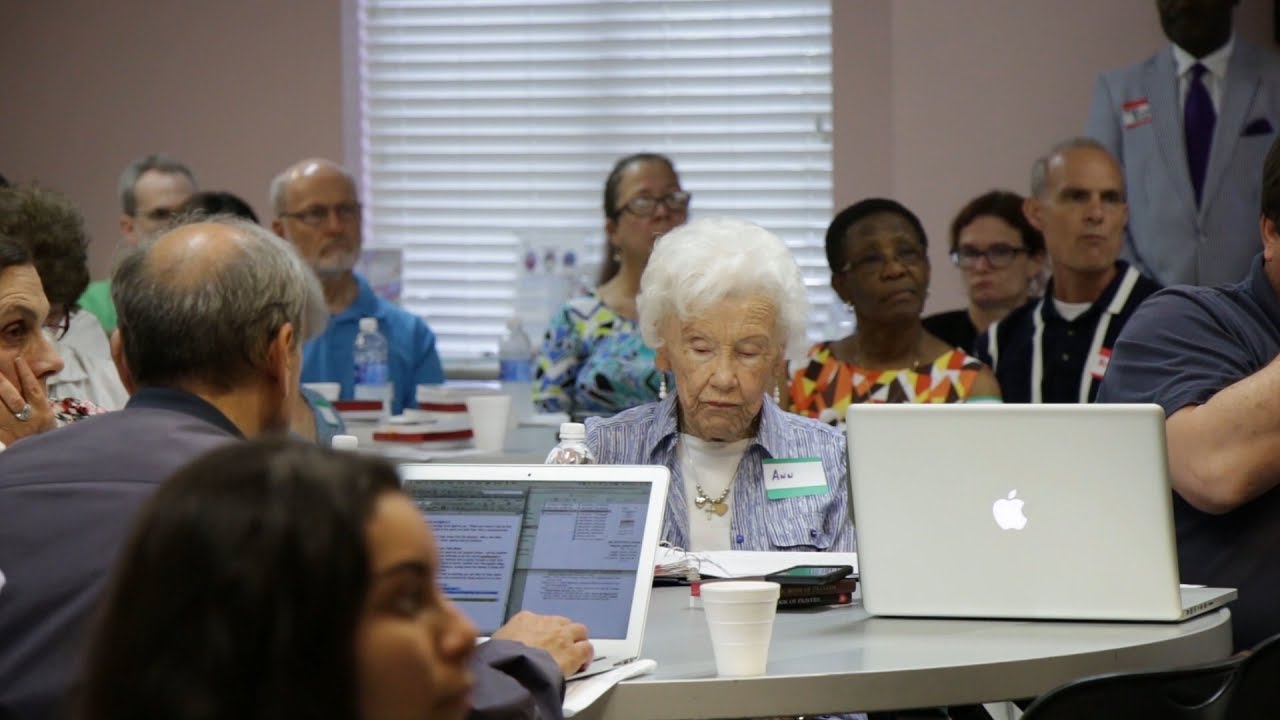
COLUMBIA—Life behind prison walls can be a dark time for inmates, but prison ministry can offer an important source of light and hope for the future.
That was the message behind the Diocese of Charleston’s Prison Ministry Conference held June 24 at Our Lady of the Hills Church. The interfaith event drew 103 men and women, both clergy and lay volunteers, who work in that outreach, plus some people who want to get involved for the first time or seek to start a program at their parish.
Participants heard from people who work in the criminal justice system, from a prison chaplain, and from former inmates who were able to turn their lives around because they heard the Gospel message while serving time.
Volunteers gave talks on the ups and downs they contend with as they work in South Carolina’s 23 correctional institutions, such as dealing with policies that change frequently and rule changes brought about when new wardens take over. People also heard about an entirely different set of challenges faced by those who work in federal prisons and city and county jails.
Bishop Robert E. Guglielmone reminded the group that ministry to prisoners is one of the corporal works of mercy, and said people cannot call themselves true disciples of Christ unless they are willing to reach out in mercy to their fellow human beings.
Brian Stirling, director of the South Carolina Department of Corrections, described how his Catholic faith helped form his character and said he feels prison ministry is a vital part of helping inmates find true rehabilitation. Stirling said the department deals with many ongoing problems, especially difficulty in hiring and retaining employees. He acknowledged that the lack of enough guards to staff a prison can have a negative effect on the outreach because it may force wardens to decrease the number of hours available for volunteers to come on site for worship services, Bible study and other religious instruction.

Stirling also described increased efforts to decrease recidivism (the number of people who return to prison after release) and said this ministry can be an important component in helping men and women return to life outside with a strong spiritual and moral foundation.
Tim Terry, a former inmate in the Upstate, described how participating in Kairos, an interdenominational program, helped him rediscover his faith in God and turn his life around. Terry founded and serves as director of Fresh Start Visions, a program with offices around the state that helps former inmates find jobs, homes and education once they are released.
Kim Wooten of Columbia, who served 11 years at a women’s facility in the Midlands, described how Catholic prison ministry helped her maintain her sense of dignity.
“That ministry helped me find I was not just another six-digit inmate but a child of God, and that behind every hardship there is a resurrection,” Wooten said.
Nikki Grimball, program specialist for prison ministry with Catholic Charities, described RENEW, a program that helps men and women rebuild their lives after they are released from prison. He explained how RENEW now works directly with inmates at Manning Reentry/Work Release Center in Columbia so they can begin to build skills before they are released.
Rev. Reggie Cruse, a Lutheran minister who serves as chaplain at Camille Graham Correctional Institution for Women in Columbia, said prison ministry is vital because it not only brings God’s love to inmates, but helps them maintain a real connection with life outside.
“Every time someone from outside speaks to an inmate, they get a taste of what it is like on the outside,” Cruse said. “When you work with them and minister to them, they get love and respect from you that many never got from their families.”
Cruse and other presenters stressed the importance of programs like RENEW in helping inmates develop life skills, get an education and build character because all of these things are needed if they are released. Statistics show that 85 percent of inmates in South Carolina serve five years or less.
“Show the inmates respect, show them that they have worth,” Cruse said. “Many of these men and women will be your neighbors when they get out. We need to prepare them to be productive citizens.”
Video by Juanita Bustamante/Miscellany

